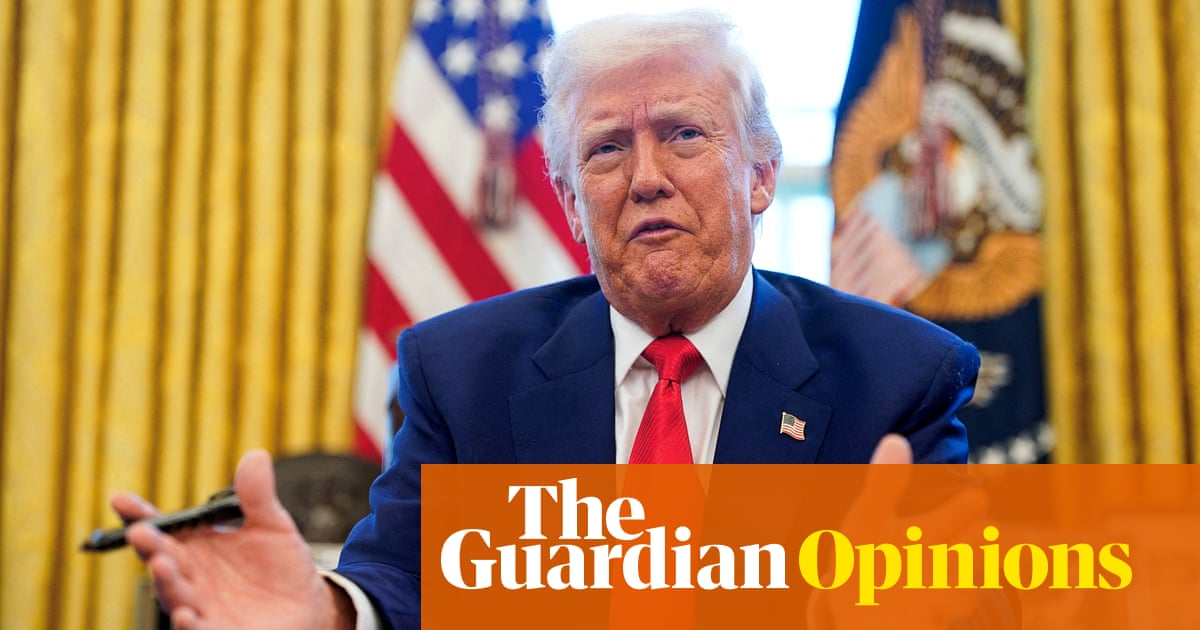Wake up! When the most sober of global institutions, the International Monetary Fund, abandons its usual technocratic calm to sound the alarm on the political roots of global financial instability, it’s time to pay attention. The IMF iswarningof a non-negligible risk of a $1tn hit to global output, as Donald Trump’s erratic “America first” agenda – part oligarchic enrichment scheme, part mobster shakedown – collides with a perfect storm ofglobal financial vulnerabilities.
Such a shock would be equivalent to a third of that experienced in the 2008 crisis. But it would be felt in a much more fragile and politically charged environment. This time, the crisis stems not just from markets but from the politics at the heart of the dollar system. The IMF’s latestGlobal Financial Stability Reportsees the danger in Mr Trump’stradepolicies, especially his “liberation day” announcements, which have pushed up America’s effective tariff rate to the highest in over 100 years.
The IMF put investors on notice that Trumpian volatility was taking place as US debt and equities – especially tech stocks – were overvalued. It cautions that hedge funds have made huge bets that have gone sour, requiring them to sell US treasuries for cash and potentially deepening the chaos in bond markets. Ominously, the IMF draws the comparison, first made by the analystNathan Tankus, with the “dash for cash” in March 2020 during Covid, when the Federal Reserve rescued US treasury markets directly. Developing nations, already grappling with the highest real borrowing costs in a decade, may now be forced to take on even more expensive debt – the IMFwarns– just to cushion the blow from Mr Trump’s new tariffs, risking a dreaded “sudden stop” in capital flows.
At the heart of this chaos stands the US, the very country meant to uphold the global financial architecture. Just over a week ago,Adam Tooze of Columbia Universitywondered if markets had begun to “sell America” after US long-maturity bond prices fell precipitously. He thought that markets were no longer just responding to economic fundamentals but to politics as a systemic risk factor. In this case: Mr Trump’s tariff threats and his increasing political pressure on Fed’s chair,Jerome Powell. In essence, Prof Tooze gave us the theory; the IMF just confirmed the data.
The US president’s continued attacks on the Fed chair over the weekend have only added to a flight from US equities, bonds and the dollar itself. The money is fleeing to safe havens such asgold. Some of the loss has beenclawedback, but at what cost? Investors aren’t just jittery about inflation or growth – they’re hedging against political chaos. That might explain the seemingly divergent IMF messaging: blunt systemic warnings in its report versus the soothing market-facingcommentsfrom a senior official at the fund’s press conference. This is central bank diplomacy. The institution is signalling that it is worried while trying not to spark a self-fulfilling panic in treasuries and the dollar.
The real concern here is not technical dysfunction intreasury marketsor the mechanics of the Fed, which are the bedrock of the global financial system. It’s about the politicisation of the monetary-fiscal nexus under a Trumpian regime that is fundamentally hostile to the norms of liberal-democratic governance. When even the dollar is no longer a safe haven, what – or who – can be?
Do you have an opinion on the issues raised in this article? If you would like to submit a response of up to 300 words by email to be considered for publication in ourletterssection, pleaseclick here.
